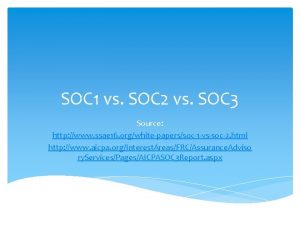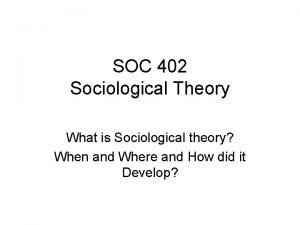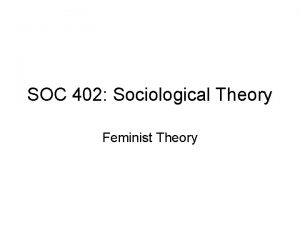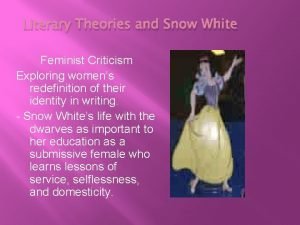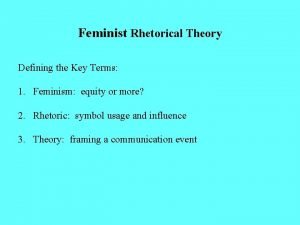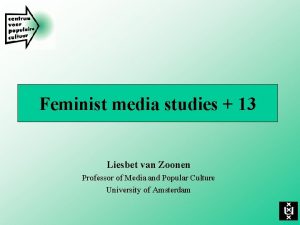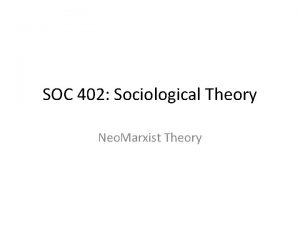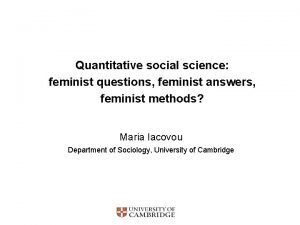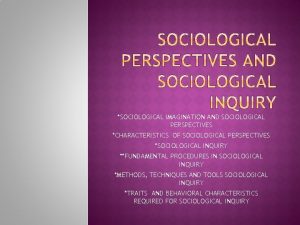SOC 402 Sociological Theory Feminist Theory Intellectual Influences








- Slides: 8

SOC 402: Sociological Theory Feminist Theory

Intellectual Influences (varied) • • • Marx and Engels Freud (reaction to) Neo-Marxist (especially critical) Neofunctionalist (especially conflict) exchange theory symbolic interactionism phenomenological poststructural feminist influence: where are the women?

Socio-historical Context • • • Feminist History/history of feminism 18 th C. bourgeois revolutions/liberal reforms 19 th C. abolition, reform, suffrage 20 th C. radical protest, socialism and progressivism 1920: women's suffrage http: //americancivilwar. com/women/Womens_Su ffrage/womens_suffrage_timeline. html • 1957: The Second Sex, Simone de Beauvoir • 1959: The Feminine Mystique, Betty Friedan • since 1970, women in sociology

Perspective • Perspective: mostly liberal vs. radical – Structural/positivist: liberal and radical – critical/Hegelian: radical – Pragmatist: social construction (Symbolic Interactionis): liberal – Phenomenological: liberal? – Postmodern: purports to being radical – Psycho-analytical, behavioral: liberal?

Focus • • Liberal: Work and Home (with politics) Radical feminist: more cultural: Patriarchy Marxist: more economic Socialist: more varied but particularly social, economic and political • Interactionist/Phenomenological: more social/cultural

Feminist Models • focus on women: structure and experience - macro and micro - compared to, in relation to men - gender differences - gender inequality - gender oppression - why/how are women: different, unequal, oppressed?

Man as oppressor patriarchal reality experienced reality gender interest conflict Woman as oppressed gender consciousness gender knowlege other gender inequality + male domination negotiation other gender women's movement gender role gender experience

Phenomenology (Berger and Luckmann) typification Taken for Granted Reality Experienced Reality Social construction accounts (Garfinkel) Consciousness interpretation Essential Reality (Husserl)
